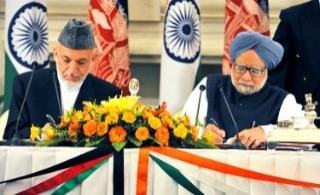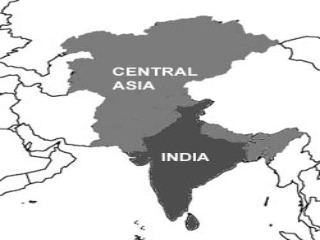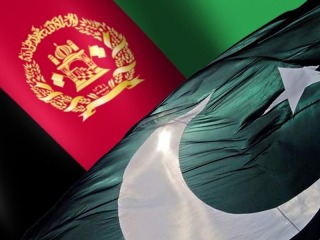Afghanistan and India Deepen Strategic Cooperation
By Richard Weitz (the 22/01/2014 issue of the CACI Analyst)
India has made major economic, political, and strategic investments in Afghanistan since the Taliban lost power in 2001. The two countries share an interest in Afghanistan’s postwar reconstruction, pursuing common diplomatic goals, and cooperating against mutual security threats. For years, India has been undertaking programs to bolster Afghanistan’s security capabilities and integrate the country into regional diplomatic and economic structures. Now with the withdrawal of Western combat forces, India is acceding to longstanding Afghan government requests and deepening bilateral security cooperation, despite the risks of provoking a strong and adverse reaction in Islamabad, as well as enlarging their economic collaboration.

“CACI Analyst, January 08, 2014”
India's Challenges in Central Asia
By Stephen Blank (the 08/01/2014 issue of the CACI Analyst)
As India enters 2014 it faces multiple and mounting security challenges in Central Asia, which originate first of all in Afghanistan and second in Iran. The impending U.S. and NATO withdrawal leaves India as the most exposed foreign power supporting Afghanistan, which few believe can survive without continuing large-scale allied support and at least some military presence. The U.S. withdrawal, which might be accelerated if no Bilateral Security Agreement (BSA) is signed between Washington and Kabul, would expose India to the risks of intensified fighting in Afghanistan. Pakistan’s belief that India’s presence there represents a threat also exposes India to further terrorist onslaughts, particularly by forces trained and supported by Pakistani military and intelligence agencies.

Pakistan's New Strategic Leadership and the Afghanistan Situation
By Naveed Ahmad (the 08/01/2014 issue of the CACI Analyst)
Pakistan’s third-time Prime Minister Nawaz Sharif has appointed a new Chief of Army Staff replacing former President Pervez Musharraf’s handpicked man, General Ashfaq Pervez Kiani. The elevation of General Raheel Sharif made global headlines primarily due to the country’s nuclear capability and its military’s tendency to intervene in politics through overt coup d’états. General Sharif, however, assumes leadership of the world’s sixth largest military at a time when NATO troops are in a process of withdrawing from Afghanistan after a presence lasting over a decade. Despite Pakistan’s improved democratic credentials, the leverage of its army chief on policies towards Afghanistan and India is likely to remain as decisive as it has ever been.






 Book S. Frederick Starr and Svante E. Cornell,
Book S. Frederick Starr and Svante E. Cornell,